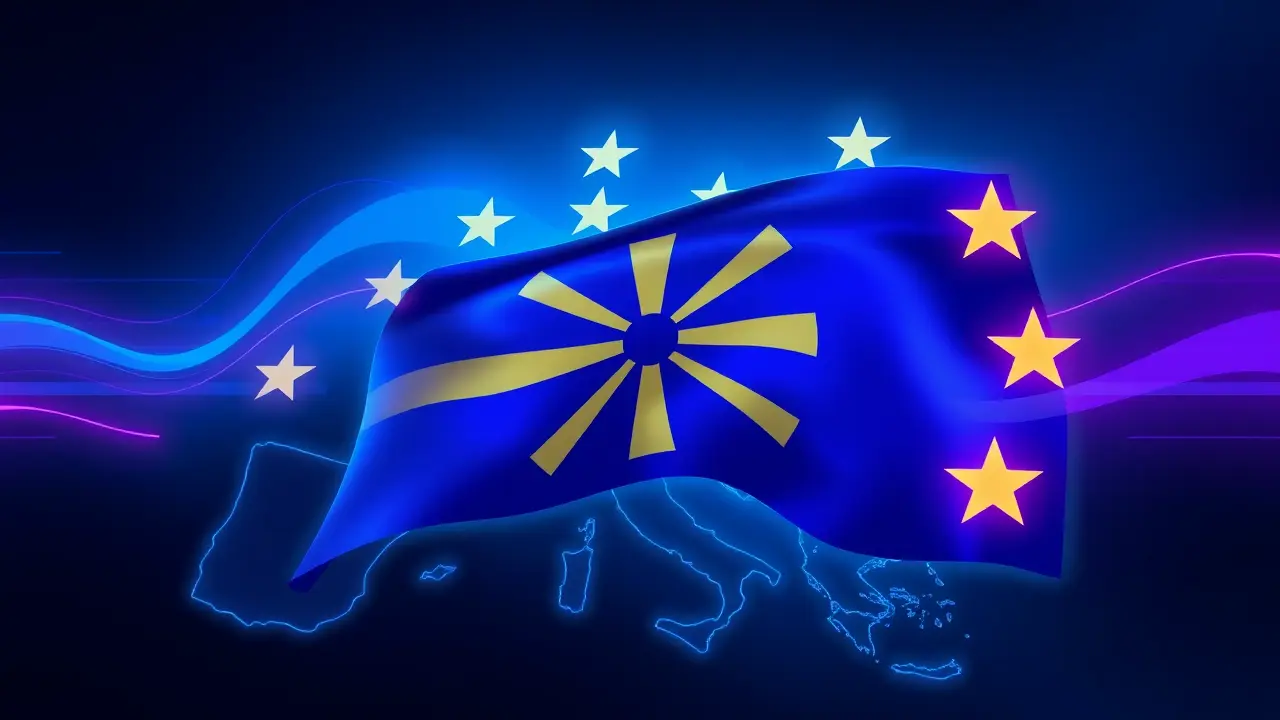
PoliticsdiplomacyBilateral Relations
North Macedonia's EU Accession Hindered by Bulgaria Dispute.
RO
Robert Hayes
3 days ago7 min read
The European Union, a project forged from the ashes of continental war to bind nations through shared law and prosperity, now faces a profound test of its foundational principles in the Balkans, where the accession hopes of North Macedonia are being held hostage by a historical and cultural dispute with its neighbor, Bulgaria. This is not merely a bureaucratic impasse; it is a deep-seated conflict over identity, language, and the very ownership of history, echoing the kind of nationalistic struggles that wiser European statesmen like Churchill warned could unravel the delicate fabric of peace.The stalemate crystallizes around Bulgaria’s insistence that the Macedonian language is a dialect of Bulgarian and its demand that North Macedonia formally acknowledge a shared historical narrative, one that effectively questions the distinct national identity of its people. For Skopje, these are non-negotiable red lines, touching the core of its sovereignty and the hard-won recognition of its statehood following its own painful compromise in resolving the name dispute with Greece.The EU, in its attempt to remain an impartial arbiter, finds its credibility waning, as the requirement for unanimous approval from all member states for enlargement gives a single nation an effective veto, a tool that is increasingly being wielded for bilateral grievances rather than collective European interest. This blockage has tangible consequences, fostering disillusionment within North Macedonia, empowering nationalist forces on all sides, and creating a dangerous vacuum in a region where Russian and Chinese influence remains a potent alternative to the European dream.Analysts point to a troubling precedent; if a nation that has undertaken significant reforms, including changing its constitutional name, can be perpetually stalled, what signal does this send to Albania, Bosnia and Herzegovina, and Kosovo? The situation demands a Churchillian resolve—a clear-eyed recognition that allowing historical grievances to dictate the future of the continent betrays the very spirit of reconciliation upon which the EU was built. Without a decisive political intervention that can separate the technical criteria for membership from intractable historical debates, the entire Western Balkans enlargement process risks stalling indefinitely, leaving a fragile region in a state of prolonged and perilous limbo.
#EU accession
#North Macedonia
#Bulgaria
#diplomatic dispute
#identity recognition
#language recognition
#featured
Stay Informed. Act Smarter.
Get weekly highlights, major headlines, and expert insights — then put your knowledge to work in our live prediction markets.
Related News
© 2025 Outpoll Service LTD. All rights reserved.













